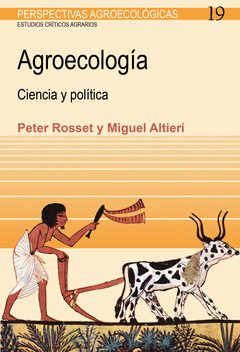Nuestro sistema alimentario global se basa mayoritariamente en las prácticas insostenibles de la agricultura industrial, es una notable fuente de gases de efecto invernadero, se halla controlado por un puñado de grandes empresas transnacionales y produce alimentos poco saludables. La agroecología es una solución a estos problemas cada vez más acuciantes.
Tras décadas de menosprecio por parte de las instituciones dominantes, y de defensa poco visibilizada por parte de los movimientos sociales, de algunos científicos y agricultores, súbitamente la agroecología se ha puesto de moda. La Organización de las Naciones Unidas para la Alimentación y la Agricultura (FAO), varias agencias gubernamentales, y hasta alguna transnacional, han querido subirse a este tren. Pero, ¿están a favor de la misma agroecología que han defendido los agricultores, científicos y movimientos sociales campesinos pioneros, o buscan en realidad cooptar el concepto para darle un contenido distinto? Rosset y Altieri, dos de los más destacados agroecólogos a nivel mundial, resumen los principios, la historia y las corrientes del pensamiento agroecológico, las evidencias científicas a favor de la agroecología, la manera de llevarla a una escala mayor, y la política contemporánea de la agroecología.
AGROECOLOGÍA
AUTOR/A
ROSSET, PETER
Dr. Peter Rosset is based in Oaxaca, Mexico, where he is a researcher at the Centro de Estudios para el Cambio en el Campo Mexicano (Center of Studies for Rural Change in Mexico), and co-coordinator of the Land Research Action Network. He is also Global Alternatives Associate of the Center for the Study of the Americas and an affiliated scholar of the University of California, both in Berkeley, California, USA. He is the former co-director of Food First/The Institute for Food and Development Policy in Oakland, California.<BR><BR>He previously served as executive director of the Stanford University Regional Center in Chiapas, Mexico. During the 1980s he spent eight years in Central America, where he led several sustainable agriculture projects. Peter has taught at Stanford University, the University of California at Berkeley, the University of Texas at Austin, the National Agrarian University of Nicaragua, the Havana Agricultural University (ISCAH) and the University of Las Villas, both in Cuba, and the Tropical Center for Agricultural Research & Education (CATIE) in Costa Rica. Peter has also been a Fellow of the John D. and Catherine T. MacArthur Foundation, and is a Board Member of Focus on the Global South in Thailand.<BR><BR>He is a food rights activist, agroecologist and rural development specialist with a Ph.D. from the University of Michigan. His published books include The Case for a GM-Free Sustainable World (2003); Sustainable Agriculture and Resistance: Transforming Food Production in Cuba (Food First Books, 2002); America Needs Human Rights (Food First Books, 1999); World Hunger: 12 Myths, Second Edition (Grove Press, 1998); The Nicaragua Reader (Grove Press, 1983); Nicaragua: Unfinished Revolution (Grove Press, 1986); The Greening of the Revolution: Cuba's Experiment with Organic Agriculture (Ocean Press, 1994); Agroecology (McGraw-Hill, 1990); and A Cautionary Tale: Failed US Development Policy in Central America (Lynne Rienner, 1996).<BR><BR>http://www.policyinnovations.org/innovators/people/data/07114



